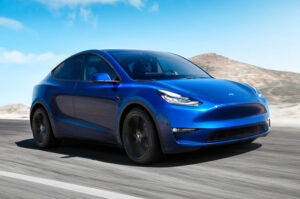Electric Ride- Explore the Benefits of Electric Vehicles
Latest Posts
Benefits of Electric Vehicles
The car industry is changing fast, so more people are switching from regular to electric cars. This is happening because technology is getting better. There are many reasons why people are making the switch.
So many factors influence this change, ranging from environmental and economic factors, and last but not least, a better driving experience.
In this blog, we will look at the advantages of electric cars and why they are the future of transport.
Environmental Benefits- Driving a Greener Future
With the diversification of the world’s climate and pollution levels, using electric cars has been a bonus to the environment. Electric cars are the best way to bring about great changes and milestones that will decrease our impact on the natural environment for future generations.
Reducing Carbon Emissions
The possibility of the consumers’ reduced carbon footprint is one of EVs’ most tempting non-financial benefits.
Cars that use conventional sources of fuel, specifically petroleum, emit a lot of Carbon dioxide (CO2) and other greenhouse gases that lead to global warming and deterioration of the surroundings.
On the other hand, electric cars have no direct emissions. They do not emit exhaust pipe emissions, which is safer for the environment.
Learn more about the Eco-friendly nature of Electric cars here.
Improved Air Quality
Apart from a drop in emissions, electric cars are also associated with better environmental quality in that they equally produce fewer emissions.
Areas with many charging stations have experienced reduced air pollution levels; this implies that the air is purer for everyone in the city.
With less pollution, there shall be a decrease in respiratory diseases and other illnesses caused by unwholesome air.
Renewable Energy Integration
Electric vehicles can be recharged using renewable energy. This is one of the most beneficial features.
People owning electric cars have a considerable advantage over others since they can recharge their cars using electricity generated from solar energy. Reducing the cost significantly.
The amount of electricity produced from fossil fuels is thus decreased, which makes EVs more eco-friendly.
Economic Advantages- Cost-Effective Transportation
There is no doubt that electric vehicles have convincing economic incentives other than their effects on the environment. Save from cheaper operating expenses to recipient incentives; electric cars paint a financially intelligent decision for current consumers.
Lower Operating Costs
The electric cars on the road bring considerable cost differentiation from conventional automobiles. Firstly, the operating cost has been reduced; thus, it is considered as one of the main financial advantages.
Electric vehicles have comparatively fewer parts than internal combustion engines; thus, fewer tangible parts wear out.
This makes it easier for the car to be maintained or even repaired throughout its life cycle, hence the justification for the additional costs of the hybrid system.
Energy Efficiency
Another factor contributing to the economic advantages of electric vehicles is their energy efficiency. EVs convert more energy from the battery to power the wheels than gasoline engines.
This efficiency translates into lower energy costs for drivers. Additionally, the cost of electricity is generally lower and more stable than gasoline prices, providing further savings.
Incentives and Rebates
Several countries provide different kinds of privileges and bonuses for using electric cars.
Such incentives may include privileges such as tax credits, rebates on the purchase price, lower registration fees, and even that special right to use carpool lanes.
These financial advantages make the use of EVs even more appealing for the customer who wants a cost-light car.

Accelerate Your Senses- Enhanced Driving Experience
The prospects of electric cars are not limited to the free release and ability to save money. The driving experience is improved in aspects that cannot be emulated by conventional automobiles and combined with comfort, performance, and state-of-the-art technology.
Quieter Ride
One of the features and aspects that are perhaps immediately apparent when using an electric vehicle is that these cars are very silent when being driven.
EVs are almost noiseless, aside from the purring sound when operating and not using the combustion engine. This process not only adds to the comfort of the driver and the passengers but also helps reduce noise levels in built environments.
Instant Torque and Acceleration
Electric cars are powerful, as many would attest to, especially in terms of acceleration. EVs can deliver torque as soon as the driver decides to take off, which imposes great acceleration, which is almost delayed.
This feature challenges the fact that an EV car usually responds and handles as centrally as other combustible cars.
Advanced Technology
Modern electric cars are developed with the most advanced technology and impressive accessories.
From the sophisticated forms of self-driving systems to the modern methods through which optimum entertainment is provided during car use, electric vehicles feature many hi-tech gadgets.
Also, most electric cars support connection with smartphones, with the help of which certain functions of the car can be managed remotely.
Energy Independence- Breaking Free from Fossil Fuels
The transition to electric cars has another major consequence regarding energy sovereignty. The increase in local economies and less dependency on oil importation by using electric cars make the energy infrastructure more secure and sustainable.
Reduced Oil Dependency
Through the collective promotion of electric cars, a nation can substantially cut down the use of oil. This transitional shift can improve energy security and minimize the economic and political risks relating to oil imports.
Thus, an increased use of internally generated electricity can help nations gain energy security as levels of dependence on foreign supplies will be reduced.
Supporting the Local Economy
Purchasing incentives for electric automobiles also helps strengthen the home economy.
The manufacturing and operation of EVs contribute to employment opportunities in clean energy industries, such as the assembly of batteries and the establishment of charging stations.
Thus, further advancements within the green economy can promote new development and contribute to local economic opportunity.
Conclusion
It is quite evident why many developed countries have shifted to using electric vehicles. With less pollution and emissions, less operating cost and incentives from the government, and smoother rides and tech advancements, electric cars form the car industry’s future.
Transitioning to electric vehicles is also a change to a more silent, greener, and energy-independent means of transport. Thus, if we consider the modern development of technologies, the usage of EVs will be a significant factor in future transport systems.

